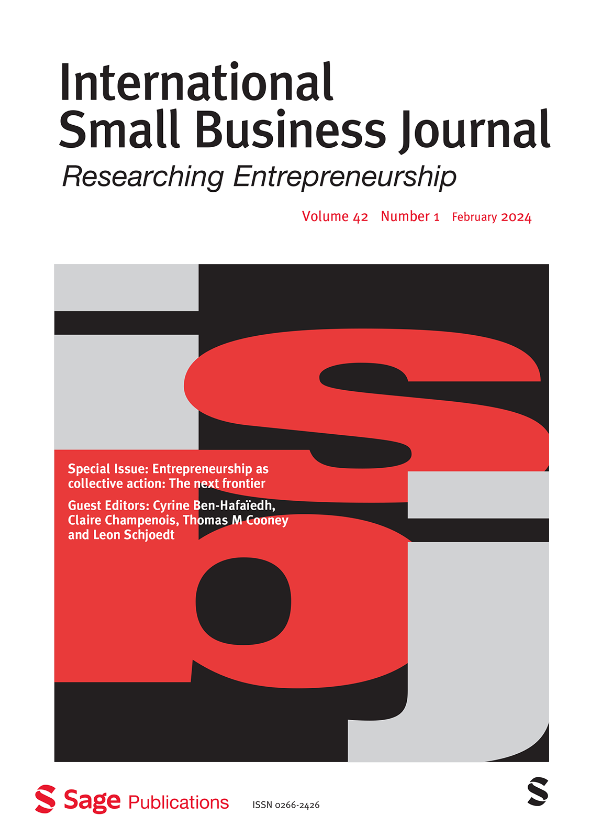英国政府支持的创业贷款:解决新企业家的劣势和信贷配给问题
IF 3.9
2区 管理学
Q1 Business, Management and Accounting
International Small Business Journal-Researching Entrepreneurship
Pub Date : 2022-10-10
DOI:10.1177/02662426221124733
引用次数: 3
摘要
2012年,英国政府决定通过创业贷款计划向被排除在信贷市场之外的新企业家提供贷款。截至2021年,已向85809家新的初创企业发放了总额为7.59亿英镑的贷款。这些SUL中有不成比例的份额被发放给了以前失业的人,以支持他们过渡到自营职业。这篇论文质疑那些从最少的资源开始的人比那些从更有利的位置开始的人取得了更好或更差的结果。我们的研究结果表明,以前失业的初创企业的贷款规模较小,他们的贷款违约风险高于有薪就业者,但受教育程度更高、年龄更大的失业者生存时间更长。更普遍地说,从贷款组合的意义上讲,失业初创企业的SUL对政府来说是具有成本效益的,但一旦完全考虑到支持进入自营职业的好处,总体贡献就非常积极。这突出了通过支持从失业向自营职业的过渡来消除资本限制可能带来的更全面的社会效益。此外,我们建议在这些国家测试软贷款替代开办补贴的效果,这些国家只提供直接赠款,以提高公共财政资源的效率。本文章由计算机程序翻译,如有差异,请以英文原文为准。
UK government-backed start-up loans: Tackling disadvantage and credit rationing of new entrepreneurs
In 2012, the UK government made the decision to offer loans to new entrepreneurs who were excluded from the credit market through the start-up loan (SUL) scheme. By 2021, loans totalling £759 million have been issued to 85,809 new start-ups. A disproportionate share of these SULs was issued to previously unemployed people to support their transition into self-employment. This paper questions whether those who started with the fewest resources achieved better or worse outcomes than those who started from a more beneficial position. Our findings show that previously unemployed start-ups had smaller loans and that they had a higher default hazard on their loans than entrants from waged employment, but more educated and older unemployed entrants survived longer. More generally, SULs to unemployed start-ups were cost-effective for the government in a loan portfolio sense, but once the benefits of supported entry into self-employment were fully accounted for, the overall contribution was very positive. This highlights the potential more comprehensive societal benefits of removing capital constraints by supporting the transition from unemployment to self-employment. Furthermore, we propose testing the effect of replacement start-up subsidies by soft loans in those countries, offering only direct grants, to increase the efficiency of public financial resources.
求助全文
通过发布文献求助,成功后即可免费获取论文全文。
去求助
来源期刊
CiteScore
10.80
自引率
8.50%
发文量
49
期刊介绍:
The International Small Business Journal (ISBJ) is a leading peer-reviewed journal renowned for publishing high-quality original research papers on small business and entrepreneurship. It prioritizes research-based studies that contribute to theory development, critical understanding, and policy formulation related to small firms.
ISBJ papers encompass theoretical, methodological, and empirical studies from various disciplines and perspectives, aiming for research excellence in the field. The journal provides a critical forum for world-class contributions analyzing entrepreneurship and entrepreneurial behavior.
This refereed journal is valuable to academics, policymakers, analysts, government and business officials, small business representative bodies, and support agencies seeking to gain insights into the sector, trade, business institutions, and related matters.

 求助内容:
求助内容: 应助结果提醒方式:
应助结果提醒方式:


